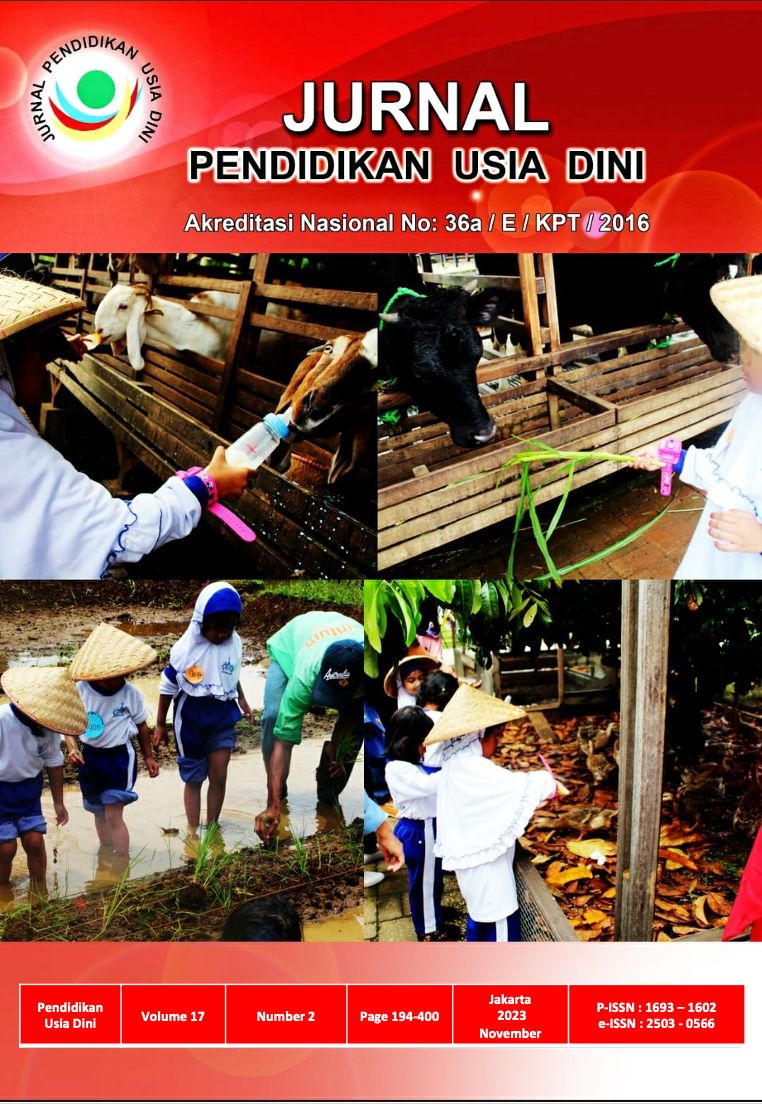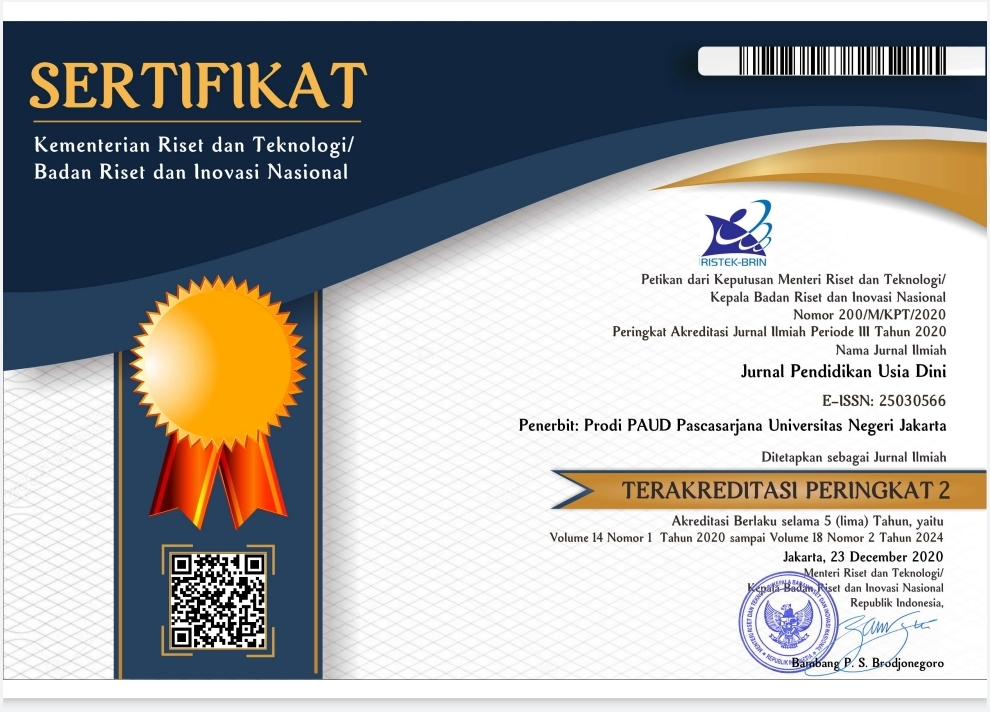Differences in Profile and Personal Learning of Massive Open Online Courses (MOOCs) Participants in Utilizing Open Educational Resources (OER) and Parenting Programs
DOI:
https://doi.org/10.21009/JPUD.172.13Abstract
Massive Open Online Courses (MOOCs) at the Indonesian Open University are independent learning tools that provide the opportunity to introduce the University to the wider community by providing quality knowledge for free. This research aims to describe the Indonesian Open University's efforts to provide solutions to limited access and quality of education by providing various free courses to the wider community through MOOCs which are open and can be attended by an unlimited number of participants. This survey study uses a modified Self-Regulated Learning (SRL) questionnaire, adapted to the profile of the community as participants and the characteristics of the Open University (UT') MOOCs program. In 2023, UT offers 23 MOOC titles, but this research limited it to only two MOOCs, Open Educational Resources (OER) with 56 participants and Parenting with 73 participants (129 teachers and parents of early childhood). This research revealed two MOOCs in real life which were analyzed using the Mann-Whitney U test to see whether there were differences in the answers between respondents who took part in the OER MOOCS and the answers of respondents who took part in the MOOCS parenting program. Apart from that, UT's MOOCs currently still use Indonesian considering that currently they are specifically for Indonesian people. UT MOOCs were developed using an open-source platform (Moodle) considering that previously lecturers and tutors had used similar platforms for their formal courses.
Keywords: self-directed learning, Massive Open Online Courses, parenting program, early childhood
References:
Aldowah, H., Al-Samarraie, H., Alzahrani, A. I., & Alalwan, N. (2020). Factors affecting student dropout in MOOCs: A cause and effect decision‐making model. Journal of Computing in Higher Education, 32(2), 429–454. https://doi.org/10.1007/s12528-019-09241-y
Al-Emran, M., Mezhuyev, V., Kamaludin, A., & Shaalan, K. (2018). The impact of knowledge management processes on information systems: A systematic review. International Journal of Information Management, 43, 173–187. https://doi.org/10.1016/j.ijinfomgt.2018.08.001
Ali, Z., Gongbing, B., & Mehreen, A. (2018). Understanding and predicting academic performance through cloud computing adoption: A perspective of technology acceptance model. Journal of Computers in Education, 5(3), 297–327. https://doi.org/10.1007/s40692-018-0114-0
Al-Rahmi, W. M., Yahaya, N., Alamri, M. M., Alyoussef, I. Y., Al-Rahmi, A. M., & Kamin, Y. B. (2021). Integrating innovation diffusion theory with technology acceptance model: Supporting students’ attitude towards using a massive open online course (MOOCs) systems. Interactive Learning Environments, 29(8), 1380–1392. https://doi.org/10.1080/10494820.2019.1629599
Arpaci, I. (2019). A hybrid modeling approach for predicting the educational use of mobile cloud computing services in higher education. Computers in Human Behavior, 90, 181–187. https://doi.org/10.1016/j.chb.2018.09.005
Burd, E. L., Smith, S. P., & Reisman, S. (2015). Exploring Business Models for MOOCs in Higher Education. Innovative Higher Education, 40(1), 37–49. https://doi.org/10.1007/s10755-014-9297-0
Chong, A. Y.-L., Chan, F. T. S., Goh, M., & Tiwari, M. K. (2013). Do interorganisational relationships and knowledge-management practices enhance collaborative commerce adoption? International Journal of Production Research, 51(7), 2006–2018. https://doi.org/10.1080/00207543.2012.701776
Cohen, L., & Magen-Nagar, N. (2016). Self-Regulated Learning and a Sense of Achievement in MOOCs Among High School Science and Technology Students. American Journal of Distance Education, 30(2), 68–79. https://doi.org/10.1080/08923647.2016.1155905
Corrado, R., Pretorius, E., & van der Westhuizen, G. (2021). Undergraduate Students’ Experiences of the Use of MOOCs for Learning at a Cambodian University. Education Sciences, 11(7). https://doi.org/10.3390/educsci11070336
Dai, H. M., Teo, T., & Rappa, N. A. (2020). Understanding continuance intention among MOOC participants: The role of habit and MOOC performance. Computers in Human Behavior, 112, 106455. https://doi.org/10.1016/j.chb.2020.106455
de Freitas, S. I., Morgan, J., & Gibson, D. (2015). Will MOOCs transform learning and teaching in higher education? Engagement and course retention in online learning provision. British Journal of Educational Technology, 46(3), 455–471. https://doi.org/10.1111/bjet.12268
Gardner, J., & Brooks, C. (2018). Student success prediction in MOOCs. User Modeling and User-Adapted Interaction, 28(2), 127–203. https://doi.org/10.1007/s11257-018-9203-z
Hsu, R. L.-W. (2021). A Grounded Theory Exploration of Language Massive Open Online Courses (LMOOCs): Understanding Students’ Viewpoints. Sustainability, 13(5). https://doi.org/10.3390/su13052577
Janelli, M., & Lipnevich, A. A. (2021). Effects of pre-tests and feedback on performance outcomes and persistence in Massive Open Online Courses. Computers & Education, 161, 104076. https://doi.org/10.1016/j.compedu.2020.104076
Ma, L., & Lee, C. S. (2020). Drivers and barriers to MOOC adoption: Perspectives from adopters and non-adopters. Online Information Review, 44(3), 671–684. https://doi.org/10.1108/OIR-06-2019-0203
Magen-Nagar, N., & Cohen, L. (2017). Learning strategies as a mediator for motivation and a sense of achievement among students who study in MOOCs. Education and Information Technologies, 22(3), 1271–1290. https://doi.org/10.1007/s10639-016-9492-y
Moore, R. L., & Wang, C. (2021). Influence of learner motivational dispositions on MOOC completion. Journal of Computing in Higher Education, 33(1), 121–134. https://doi.org/10.1007/s12528-020-09258-8
Rambe, P., & Moeti, M. (2017). Disrupting and democratising higher education provision or entrenching academic elitism: Towards a model of MOOCs adoption at African universities. Educational Technology Research and Development, 65(3), 631–651. https://doi.org/10.1007/s11423-016-9500-3
Reparaz, C., Aznárez-Sanado, M., & Mendoza, G. (2020). Self-regulation of learning and MOOC retention. Computers in Human Behavior, 111, 106423. https://doi.org/10.1016/j.chb.2020.106423
Singh, A., & Sharma, A. (2021). Acceptance of MOOCs as an alternative for internship for management students during COVID-19 pandemic: An Indian perspective. International Journal of Educational Management, 35(6), 1231–1244. https://doi.org/10.1108/IJEM-03-2021-0085
Wei, X., Saab, N., & Admiraal, W. (2021). Assessment of cognitive, behavioral, and affective learning outcomes in massive open online courses: A systematic literature review. Computers & Education, 163, 104097. https://doi.org/10.1016/j.compedu.2020.104097
Downloads
Published
How to Cite
Issue
Section
License
JURNAL PENDIDIKAN USIA DINI work is licensed under a Creative Commons Attribution 4.0 International License. (http://creativecommons.org/licenses/by/4.0/)





